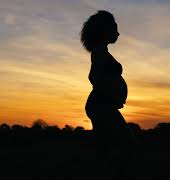Spain set to become first European country to offer menstrual leave
By Sarah Finnan
12th May 2022
12th May 2022
The government is in talks to approve a draft reform which would allow women to avail of three days off work during their period each month.
Spain is set to become the first European country to offer menstrual leave to women who suffer severe period pain. According to a draft reform due to be approved by the Spanish government next week, women would be entitled to take up to three days off per month during their period.
Part of a wider reform package set to pass at Spain’s next cabinet meeting on Tuesday, other measures included under the new scheme range from changes to the price of sanitary products to requirements for schools to provide free sanitary products for those who need them. The package will also see the removal of a parental permission requirement for 16 and 17-year-olds seeking an abortion.
As The Telegraph reports, entire areas of the country are currently classed as no-abortion zones due to opt-out policies under which doctors can refuse to provide abortions on ethical grounds.
Last month, Spain’s Secretary of State for Equality and Against Gender Violence, Ángela Rodríguez, announced new measures that would guarantee menstrual health and recovery or reproductive health, including medical leave for women recovering from an abortion.
Speaking to El Periodico newspaper on the topic of menstrual leave, Rodríguez said, “It’s important to clarify what a painful period is, we are not talking about a slight discomfort, but about serious symptoms such as diarrhoea, severe headaches, fever.
“If someone has an illness with such symptoms, a temporary disability is granted. So, the same should happen with menstruation – allowing a woman with a very painful period to stay at home.”
Only in office five months, Rodríguez is already making an impact with her proposals, emphasising that she and her team “have done [their] homework”. “The previous plan has long since expired and no government has launched another one,” she added. “The future reform cannot be limited to just reproductive rights, it must also cover sexual rights. The rights related to menstrual health have never been discussed and the data is chilling.
“One in four women cannot choose the feminine hygiene products they want to buy because of financial reasons. That’s why we propose that they should be dispensed free of charge in all educational and social centres. Rodríguez is also pushing for a reduction in tax along with increased education about menstrual health in schools.
“I remember the first time I got my period when I was 9 years old and I didn’t know what it was. We cannot allow for an education system to exist in which menstrual health is not discussed.”
Last year, the Catalan city of Girona became the first in the country to consider flexible working arrangements for those suffering period pain/discomfort. Announcing that it would provide its women, trans men and non-binary employees with up to eight hours menstrual leave a month, the only caveat was that any time used must be recovered within a span of three months.
“We are eliminating the taboo that exists around menstruation and the pain that some women suffer – that we suffer – during menstruation,” the city’s deputy mayor, Maria Àngels Planas, said at the time. The Catalan municipalities of Ripoll and Les Borges Blanques announced similar policies soon after.
If passed, the new policy would make Spain the first Western country to offer menstrual leave. However, many other countries around the world have already implemented similar systems – Japan, South Korea, Indonesia and Zambia amongst them.























